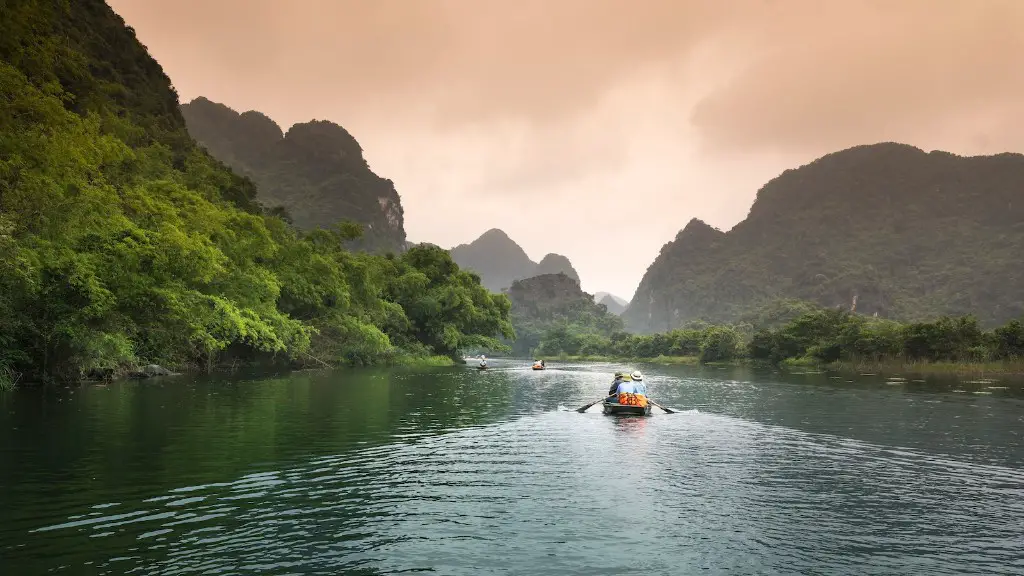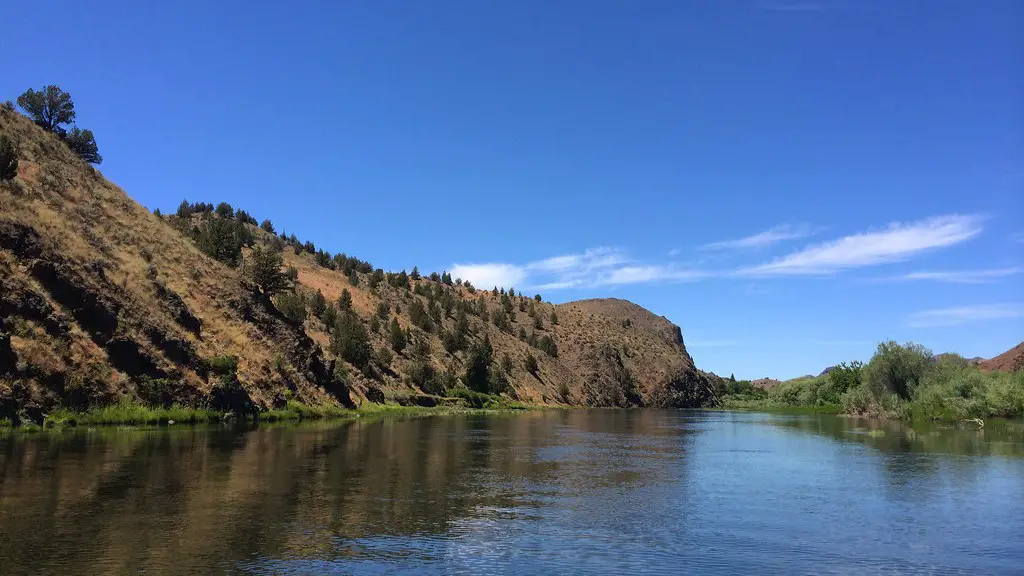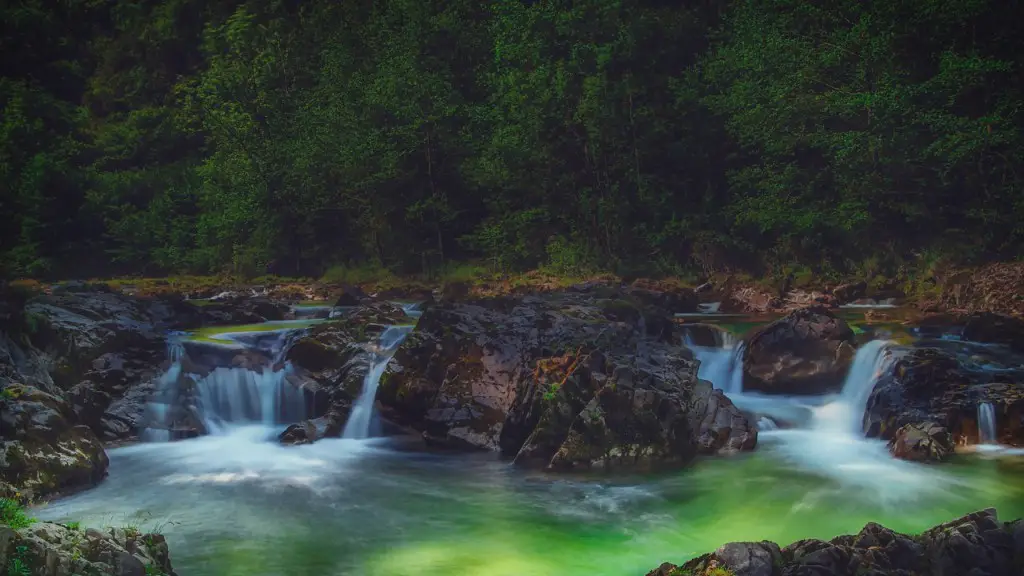Exploring American History Through the Mississippi River
The Mississippi River holds a special place in the collective memory of the United States. By looking at the river’s importance to American history, one can gain insight into the evolution of the country and its people. Arguably no other body of water has played as significant of a role in the development of the United States as the Mississippi River.
Geographical Significance
The Mississippi River runs from the headwaters of Minnesota, through the Great Plains and Midwest, and eventually converges with the Gulf of Mexico by Louisiana. Geographically speaking, it is the second longest river in United States and the fourth largest in terms of watershed. This generous waterway encompasses more than 1.2 million square miles, draining many states, including Louisiana, Iowa, Arkansas, Minnesota, Wisconsin, Missouri, and Mississippi – for which it is named. It has been said that ‘without the Mississippi River there would be no Midwest”. Indeed, it is the foundation of America’s breadbasket, without which the Midwest would be a barren and isolated home to only the hardiest human civilizations.
Contributing to a Wealthy Economy
In an economic sense, the Mississippi has connected not only the Midwest and the South, but also the entire east and gulf coasts of the United States. Farmers, traders, and entrepreneurs have taken advantage of the river’s strategic importance to develop commercial interests, export goods, and create a profitable trade. The river has allowed for broader access to coal, grain, and oil for the region. The fact that the Mississippi is a navigable river further opens up access to distant markets, allowing for new industries to thrive. Over time, this has contributed to the country’s industrial power and economic growth.
The Effects of the Expansion of the United States
The importance of the Mississippi River was not simply limited to economic gain. It also sparked a nationwide migration. As settlement expanded, early Americans followed the Mississippi to explore, settle, and secure their new frontiers. It provided the main travel route for many early pioneers, giving a sense of purpose, progress, and adventure. It resulted in massive population growth, ultimately aiding the cause of western expansion. In the American imagination, the Mississippi River was a symbol of the country’s greater potential, and it still carries nostalgia and optimism today.
The Role of the Mississippi in the Civil War
In the mid-19th century, the Mississippi also played an important role in the build up to the Civil War. The movement of goods, goods and people on the river contributed to the intensification of the slaves and the increase in their numbers. The river further divided the North and South economically, adding to the regional tensions of the era. During the war, the Union employed a strategy of blockade by controlling the river in order to prevent goods and goods from reaching the Confederate’s army. Some argued this tactic, combined with other military strategies, eventually led to the victory of the Union and the end of slavery in the United States.
Mississippi Reflected in Popular Culture
The Mississippi has been immortalized in American popular culture, notably in songs, books, and films. The iconic image of the river and the shared stories around it have come to embody the American Dream of freedom, progress, and a spirit that pulls us toward a better future. It reflects the values of freedom, adventure and exploration, which have come to define the country’s spirit and identity.
Mississippi’s Impact on the Environment
The river and its associated ecosystems have sustained generations of settlers, and have been altered in the face of economic and technological development. Throughout the 20th century, extensive modifications have been made to the river, many of which have had a negative impact on the environment. Resource extraction and pollution from factories, farms, and cities have diminished biodiversity, leading to the loss of natural habitats and species. Though human activities continue to put the river’s existence at risk, still one can find a number of dedicated preservation efforts around the region.
Irreplaceable Ecological Resources Of Mississippi
The river and its associated ecosystems have sustained generations of human lifeways. The abundance of wetland habitats, fish varieties, and nourishing water, has played a role in the development and sustenance of human and natural worlds. Today, we are only beginning to recognize the irreplaceable ecological resources the Mississippi provides. Cooperation and education are key to protecting the river’s unique and treasured ecosystems for future generations.
Mississippi’s Contribution in Culture and Economy
The Mississippi, along with its tributaries and wetlands, has shaped both the physical and cultural landscape of the United States. Its influence in connecting the cultures of the east and west has been unmistakable. The thriving economies of states and communities along the river have also been indebted to the Mississippi. From trade to industry and transportation, the river has been a source of great economic growth and opportunity.
Value of Mississippi over the Years
Over the past two centuries, the Mississippi has served as the backbone of American development. Its open prairies have offered hope and opportunity to generations of Americans. The waters have allowed people to travel, the rich soils to grow. The Missouri River is said to have made America what it is today—an example of progress and prosperity.
Mississippi is Still an Important National Asset
Despite the negative impacts brought about by human activities and the changing climate, the Mississippi still remains a vital asset to the United States. A sense of both gratitude and caution is now imbued within the lives of those living along the river, young and old alike. Despite the turbulent history, the river stands as a symbol of American culture from its societal roots to the environment that embodies its spirit.


